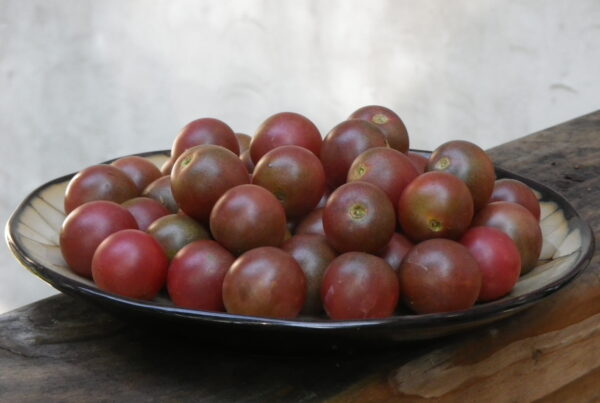NSAC publishes new, updated Farmers’ Guide
It will soon be time to sign up for the Conservation Stewardship Program (CSP) for the 2021 season. CSP supports high-level, whole-farm conservation, with an emphasis on “priority resource concerns” which are determined at state and local levels. In Virginia, water quality, soil conservation, and soil health generally rank high. Organic farming systems should, by all rights, qualify as high level stewardship that merits support through CSP. The more organic farmers enroll in CSP, the greater leverage we have for impelling this program to live up to its full potential to advance soil health, climate mitigation, resilience, and best organic practices.
This week, the National Sustainable Agriculture Coalition (NSAC) published an excellent, updated Farmers’ Guide to the CSP. This Guide is a great way to familiarize yourself with the program, decide whether to apply, and identify conservation issues you would like to address. NSAC also issued a press release and a blog post with more info on the Farmers’ Guide to CSP.
While Virginia State NRCS has not yet announced a signup deadline for new applicants, those of you who are applying for renewal of an existing CSP contract that is expiring this year need to get your renewal application submitted by December 4. I expect to have a signup date for new applications to share with you all in the next Newsletter – and the deadline itself will be sometime early in 2021. Note that the initial application process is simple and straightforward – working with NRCS personnel to evaluate your resource condition, select conservation activities, and develop a contract will take place later in the process.
Presidential Transition
With the 2020 Presidential election “mostly” behind us, the National Sustainable Agriculture Coalition (NSAC) is preparing for a transition to a new DC scene that will provide both opportunities and challenges in building the agricultural and food system we envision. While the current Administration has yet to concede the election and is still requesting recounts and legal reviews, the Biden team is proceeding with the transition. In addition to convening a panel of national public health leaders to develop a plan to deal with the pandemic, Biden and Harris have appointed transition team members to work on agricultural and climate issues.This week, NSAC delivered to the Biden-Harris transition team a “Transition Team Document” with policy recommendations that can be implemented administratively (without awaiting Congressional legislation) during the first 100 days in office. Developed by NSAC staff and representatives of NSAC member organizations including VABF, this document includes the following themes:
- Commit to building racial equity in program design and delivery across all USDA mission areas.
- Promote a climate-resilient agriculture through enhanced investment in research and conservation programs, as outlined in the Agriculture Resilience Act.
- Strengthen conservation programs by emphasizing soil health, organic, and advanced grazing management, and ending support for confined animal feeding operations.
- Rebuild USDA research capacity with emphasis on organic agriculture, soil health, climate resilience and mitigation, and crop and livestock breeding for organic systems.
- Make food safety regulations scale-appropriate and provide farmer food safety training.
- Protect the health, safety, and labor rights of migrant and other farmworkers.
- Reform USDA crop insurance programs to support conservation and diversified farming.
- Build resilient regional food systems, support smaller diversified farms serving local markets, connect farmers with those in need through electronic benefits transfer.
Watch the NSAC blog for more in-depth analysis of the transition process, including opportunities in the new year to bring Virginia farmers’ priorities to the new Administration.
Coronavirus Relief Package news
CFAP application deadline December 11
In the wake of an historically complicated election, the fourth coronavirus relief package (aka C4, or the HEROES act, passed by the House but not yet taken up by the Senate), remains stalled in Congress, with no clear indication as to when it will move forward. When it does so, we will need to urge our Senators and Representatives to ensure that the new package includes substantive support for small to midsize, diversified farms serving local food systems. The National Sustainable Agriculture Coalition (NSAC) has written a letter to Senate and House leadership detailing bills and provisions toward this goal, and has provided guidance on asking your Members of Congress to take effective action
Meanwhile, there is still time for farmers to apply for economic relief through the second round of the Coronavirus Farm Assistance Program (CFAP-2), open for applications until December 11. Click here for more information.
Other NSAC news
The USDA Farm to School Grants Program has issued its request for applications, and will be awarding a total of $10 million in grants to schools, nonprofits, state and local agencies, agricultural producers, and American Indian tribal organizations to increase local food procurement for school meal programs and to expand educational activities related to agriculture and food. Click here for more information. Deadline for proposals is January 8.
NSAC co-hosted a highly informative webinar on Black farm cooperatives and their vital work in overcoming the barriers imposed by structural racism and in helping the Black farming community thrive. Click here for more, including a link to the webinar.
The 2019 National Agricultural Statistics Service (NASS) Organic Survey shows that the organic sector continues its rapid exponential growth, spurred both by robust demand and by more and more farmers getting into organic production.
The USDA Beginning Farmer and Rancher Development Program (BFRDP) awarded a total of $16 million for 48 projects for Fiscal Year 2021, including 15 in the Southern Region. Click here for more on the innovative beginning farmer training and assistance projects funded.






